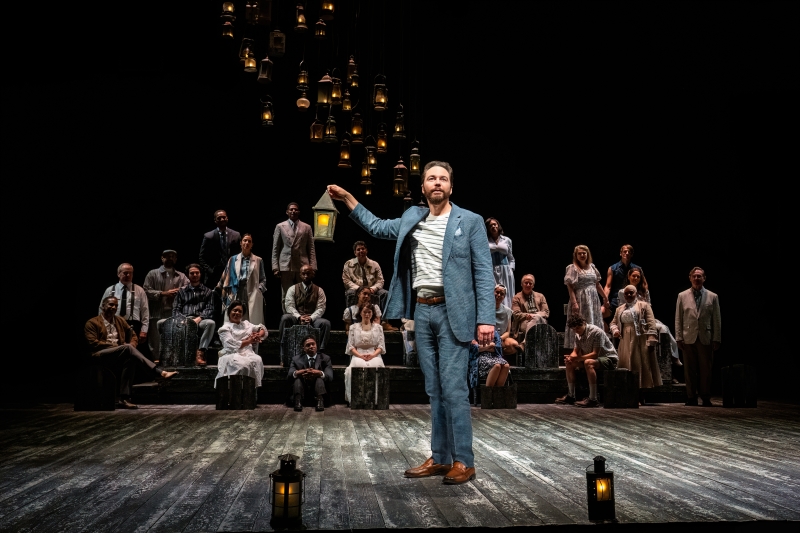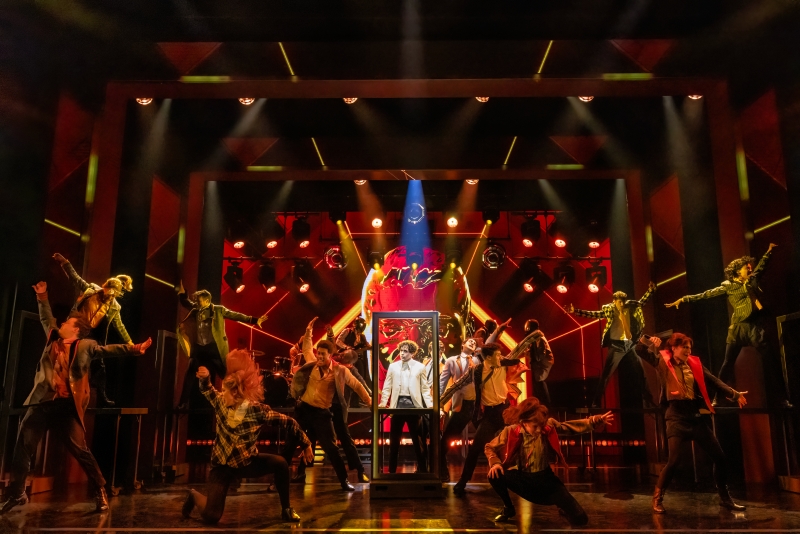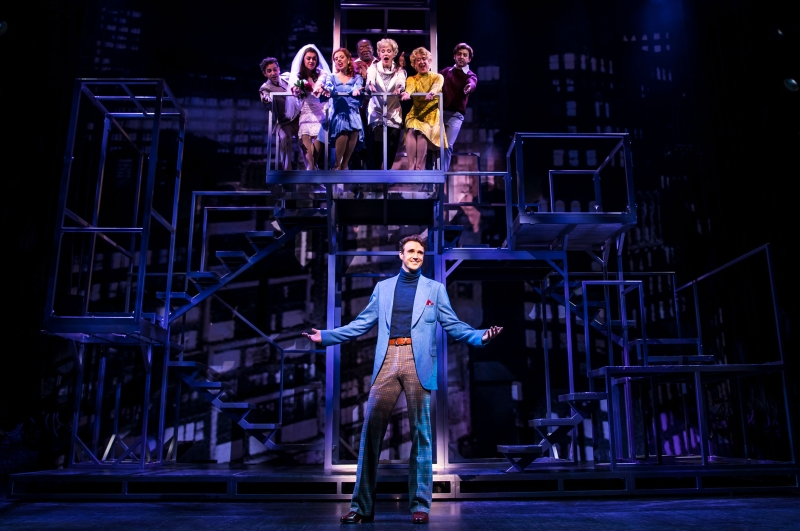Exploring Theater Events: Musicals, Plays, Operas, and More
What's the difference between a play and a musical? An opera and an operetta? We're breaking it down.
Shakespeare famously declared, "all the world's a stage," and indeed, theaters across the globe offer a myriad of performances that captivate and inspire. From the ancient Greek amphitheaters to Broadway's bustling stages, theater has continuously evolved, embracing diverse forms such as musicals, operas, and ballets. Join us as we explore these fascinating types of theater events, each with its unique charm and appeal.
Musical
A musical combines spoken dialogue with songs and music to tell a story. Music plays a central role in driving the narrative, often featuring dance sequences and elaborate staging. Musicals are sometimes sung all the way through (with no dialogue), but not always. Popular examples include The Phantom of the Opera and Hamilton.
Play
A play is a live theatrical performance that focuses on spoken dialogue and acting. It can range from drama to comedy, with a strong emphasis on storytelling through the actors' performances. Unlike musicals, plays rarely feature music or dance numbers. Examples include Death of a Salesman and Hamlet.

Play with Music
In a play with music, music is used to enhance the storytelling, but it does not dominate the narrative as in a musical. The music may serve as background, underscore dramatic moments, or be performed live by actors, but the focus remains primarily on the spoken dialogue and plot. Examples include Lady Day at Emerson's Bar and Grill and Peter and the Starcatcher.
Opera
An opera is a dramatic performance where the dialogue is entirely sung, accompanied by an orchestra. Often featuring grand themes and intricate music, operas are known for their complex vocal performances. Composers like Mozart and Verdi are well-known in this genre. Operas are typically not seen on Broadway. Examples include Tosca and Carmen.
Opera encompasses a variety of distinct styles, each defined by its unique musical and dramatic characteristics. Bel canto(Italian for "beautiful singing") emerged in the late 18th and early 19th centuries and is known for its emphasis on vocal agility, expressive phrasing, and technically demanding passages. Composers such as Rossini, Donizetti, and Bellini crafted works that showcased the singer's ability to sustain long, elegant lines and execute intricate ornamentation.
In contrast, verismo (Italian for "realism") developed in the late 19th century as a response to the idealized, often mythological themes of earlier operas. Verismo composers like Puccini, Mascagni, and Leoncavallo sought to portray raw human emotions and everyday life, using passionate melodies, intense drama, and a more declamatory vocal style to heighten the realism of their stories.
Other styles include opera seria, the grand, dramatic form that dominated the Baroque era with its regal themes and virtuosic arias, and opera buffa, the lighter, comedic counterpart that flourished in the 18th and 19th centuries, often featuring satirical or farcical plots. Additionally, Wagnerian opera, or music drama, pioneered by Richard Wagner, integrates music and storytelling seamlessly with continuous orchestration and leitmotifs—recurring musical themes associated with characters or ideas. These various sub-genres showcase opera’s vast expressive range, from the ethereal beauty of bel canto to the gripping intensity of verismo.
Rock Opera
A rock opera is a type of musical work that combines the elements of rock music with opera-style storytelling. Unlike traditional rock albums, which may have unrelated songs, a rock opera has a continuous narrative, often exploring complex themes or following a specific plot with characters and events. Rock operas typically use the structure and dramatic scope of opera, but the music is rooted in rock and other contemporary genres. recent examples include The Who's Tommy and Jesus Christ Superstar.

Operetta
An operetta is a light form of opera, blending both spoken dialogue and song. It often includes comedic elements and lighter subject matter than traditional opera, with catchy tunes and simpler vocal demands. They gained popularity in the early 1900s. Famous examples include The Pirates of Penzance and H.M.S. Pinafore.
Ballet
A ballet is a theatrical performance that tells a story through dance, often accompanied by orchestral music, elaborate costumes, and visually striking set designs. Unlike plays or operas, ballet does not rely on spoken dialogue; instead, the narrative is conveyed through expressive movement, intricate choreography, and the emotional interpretation of the dancers. The music plays a crucial role in setting the tone and guiding the storytelling, with renowned composers like Tchaikovsky, Prokofiev, and Stravinsky creating some of the most iconic ballet scores.
Ballet can be broadly categorized into different styles, including classical ballet, which is known for its precise technique, graceful movements, and structured storytelling, as seen in works like Swan Lake and The Nutcracker; romantic ballet, which often features ethereal themes, supernatural elements, and expressive storytelling, exemplified by Giselle and La Sylphide; and contemporary ballet, which blends classical ballet techniques with modern dance influences, allowing for greater freedom of movement and abstract storytelling, as seen in works by choreographers like George Balanchine and William Forsythe.
Beyond the well-known productions, ballet continues to evolve, incorporating new themes and innovative choreography to remain a dynamic and influential art form. Whether depicting fairy tales, historical narratives, or abstract emotional experiences, ballet captivates audiences with its unique ability to communicate powerful stories through the universal language of movement.
Revue
A revue is a type of multi-act theatrical performance that blends music, dance, and sketches, often incorporating humor, satire, or spectacle. Unlike traditional plays or musicals that follow a continuous narrative, revues are composed of a series of self-contained acts that may share a common theme, concept, or artistic style. This format allows for great versatility, enabling productions to showcase a variety of performers and styles within a single show.
Revues gained immense popularity in the late 19th and early 20th centuries, particularly in the United States, where they became a major form of entertainment on Broadway and in vaudeville circuits. One of the most famous and extravagant examples was Ziegfeld Follies, created by Florenz Ziegfeld in 1907. Inspired by the opulent stage spectacles of Paris, such as the Folies Bergère, the Ziegfeld Follies presented dazzling musical numbers, elaborate costumes, and comedic sketches, often featuring stars like Fanny Brice, W.C. Fields, and Eddie Cantor.
Other influential revues included George White’s Scandals, which ran from 1919 to 1939 and introduced major jazz and dance innovations, and The Blackbirds Revues, which were groundbreaking all-Black productions featuring artists such as Florence Mills and Bill "Bojangles" Robinson, bringing Harlem Renaissance talent to mainstream audiences.
Revues played a crucial role in shaping American musical theatre, as they provided a platform for emerging songwriters and composers to experiment with new material. Many of the era’s most iconic songs and composers found their first successes in revues, including the works of Irving Berlin, George and Ira Gershwin, and Cole Porter.
While traditional revues declined in popularity with the rise of book musicals in the mid-20th century, the format has persisted in modern theatre. Productions like Ain’t Misbehavin’ (a revue celebrating the music of Fats Waller), Side by Side by Sondheim (a showcase of Stephen Sondheim’s work), and more recent examples such as Prince of Broadway(honoring the career of legendary director Harold Prince) and Smokey Joe’s Café (featuring the music of Leiber and Stoller) continue to demonstrate the enduring appeal of the revue format.
Revues remain an essential part of American theatrical history, providing a showcase for diverse artistic talents and serving as a bridge between vaudeville, musical theatre, and contemporary concert-style performances.

which featured songs from the musicals of Hal Prince.
Variety Show
A variety show is a performance that includes multiple forms of entertainment, such as music, comedy, magic, and dance. Each act is separate, making it a diverse and entertaining experience with no singular storyline. Popular in the early 20th century, it still appears in modern formats like TV talent shows. Examples include Saturday Night Live and The Carol Burnett Show.
Pantomime
A pantomime is a form of family-friendly theater, traditionally performed during the holiday season. It combines slapstick comedy, music, and audience interaction, often retelling classic fairy tales or folklore with a humorous twist. Pantomime or 'Panto' is a popular artform in the UK and is a major part of the holiday season theatre tradition.
Concert
A concert is a live music performance, typically featuring a solo artist or band. While it may include visual elements such as lighting or screens, the primary focus is on the music. Concerts span a wide range of genres from classical to rock. While concerts are not often considered true "theatrical" experiences, they can sometimes be performed on Broadway stages. Recent examples include Bruce Springsteen and Ben Platt.
.jpg)
Cabaret
A cabaret is an intimate performance that blends music, comedy, and sometimes dance or burlesque. It often takes place in smaller, informal venues, allowing for close interaction between performers and the audience. The content can range from lighthearted to risqué.
Note: cabaret is not to be confused with the Kander and Ebb musical, Cabaret.
Immersive Theatre
Immersive theatre breaks the traditional barrier between performers and the audience, allowing viewers to move freely within the performance space. The audience becomes part of the story, often interacting with actors and influencing the progression of the narrative.
Experimental Theatre
Experimental theatre challenges traditional structures of storytelling and performance. It often incorporates multimedia, unconventional settings, or abstract themes, aiming to provoke thought or explore new ways of artistic expression. This type of theatre can be highly conceptual or avant-garde.

Videos

